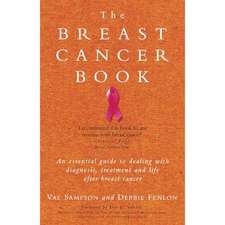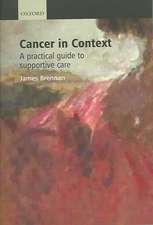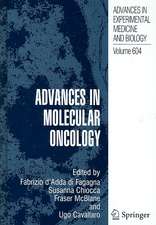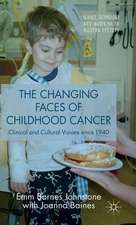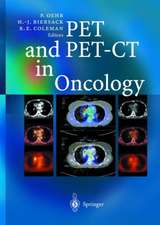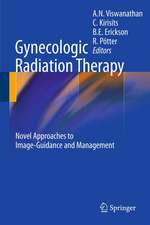Genetic Toxicology and Cancer Risk Assessment
Autor Wai Nang Choyen Limba Engleză Hardback – 31 aug 2001
This book comprehensively reviews the various roles of genetic toxicology in human cancer risk assessment conducted by United States and worldwide regulatory agencies-discussing hazard identification, dose-response relationships, exposure assessment, and current practices of risk characterization.
Examines predictive values of mutagenicity tests, mechanisms of carcinogenesis, and conventional genotoxicity tests required by the International Conference on Harmonization and the Organization for Economic Cooperation and Development/Environmental Protection Agency guidelines!
Comprised of contributions from prominent experts and risk assessors and including nearly 1200 references to facilitate further study, Genetic Toxicology and Cancer Risk Assessment
Linking human cancer genetics, mutagenicity assays, mechanisms of carcinogenesis, carcinogenic thresholds, molecular epidemiology, mathematical modeling, and quantitative cancer risk analysis, Genetic Toxicology and Cancer Risk Assessment is a must-have reference for toxicologists; oncologists; geneticists; biostatisticians; reproductive, developmental, cell, and molecular biologists; endocrinologists; biochemists; and upper-level undergraduate, graduate, and medical school students in these disciplines.
Preț: 1332.52 lei
Preț vechi: 1625.03 lei
-18% Nou
Puncte Express: 1999
Preț estimativ în valută:
254.99€ • 272.66$ • 212.60£
254.99€ • 272.66$ • 212.60£
Carte tipărită la comandă
Livrare economică 18 aprilie-02 mai
Preluare comenzi: 021 569.72.76
Specificații
ISBN-13: 9780824702946
ISBN-10: 0824702948
Pagini: 404
Dimensiuni: 152 x 229 x 23 mm
Greutate: 0.61 kg
Ediția:1
Editura: CRC Press
Colecția CRC Press
Locul publicării:Boca Raton, United States
ISBN-10: 0824702948
Pagini: 404
Dimensiuni: 152 x 229 x 23 mm
Greutate: 0.61 kg
Ediția:1
Editura: CRC Press
Colecția CRC Press
Locul publicării:Boca Raton, United States
Public țintă
ProfessionalRecenzii
"
…engaging and informative….
…a useful contribution to the field of genetic toxicology.
"-Doody
"…well-detailed….
…a great reference material.
"-Australian Journal of Medical Science
"…offers the reader an authoritative, practical insight.
"-Cancer Forum
…engaging and informative….
…a useful contribution to the field of genetic toxicology.
"-Doody
"…well-detailed….
…a great reference material.
"-Australian Journal of Medical Science
"…offers the reader an authoritative, practical insight.
"-Cancer Forum
Cuprins
Human Cancer Genetics Jason W. Barlow and David Malkin Genetic Toxicity Tests for Predicting Carcinogenicity Errol Zeiger Genotoxic and Nongenotoxic Mechanisms of Carcinogenesis Wai Nang Choy Structure-Activity Relationship (SAR) and its Roles in Cancer Risk Assessment David Y. Lai and Yin-tak Woo Regulatory Genetic Toxicology Tests Wai Nang Choy Complementary Genetic Toxicology Assays B. Bhaskar Gollapudi The Mouse Lymphoma Assay (MLA) Using the Microwell Method Masamitsu Honma and Toshio Sofuni The In Vitro Micronucleus Assay Marilyn J. Aardema and Micheline Kirsch-Volders ICH Guidelines on Genotoxicity and Carcinogenicity: Scientific Background and Regulatory Practice Lutz Müller, Peter Kasper, and Leonard Schechtman New OECD Genetic Toxicology Guidelines and Interpretation of Results Michael C. Cimino Dose-Response Relationships in Chemical Carcinogenesis and Cancer Risk Assessment Werner K. Lutz Molecular Epidemiology and Biomarkers Jia-Sheng Wang, Jonathan M. Links, John Groopman Quantitative Cancer Risk Assessment of Nongenotoxic Carcinogens Anna M. Fan and Robert A. Howd Risk Assessment of Genotoxic Carcinogens Lauren Zeise Biologically Based Cancer Risk Assessment Models Suresh H. Moolgavkar
Descriere
Presents state-of-the-art regulatory cancer risk assessment models including a biologically based model for two-hit carcinogenesis and cell proliferation!
This book comprehensively reviews the various roles of genetic toxicology in human cancer risk assessment conducted by United States and worldwide regulatory agencies-discussing hazard identification, dose-response relationships, exposure assessment, and current practices of risk characterization.
Examines predictive values of mutagenicity tests, mechanisms of carcinogenesis, and conventional genotoxicity tests required by the International Conference on Harmonization and the Organization for Economic Cooperation and Development/Environmental Protection Agency guidelines!
Comprised of contributions from prominent experts and risk assessors and including nearly 1200 references to facilitate further study, Genetic Toxicology and Cancer Risk Assessment
reviews contemporary human cancer genetics as related to the mutagenic nature of carcinogenesis
calculates acceptable exposure levels based on a carcinogenic threshold dose for nongenotoxic carcinogens
reveals the rationale and methodology of quantitative estimation of human cancer risks using mathematical models
discusses the threshold concept of carcinogenesis
demonstrates how bacterial mutagenicity assays are the most reliable for predicting rodent carcinogens
considers structural activity relationship (SAR) analysis of chemical carcinogenicity
describes the emergence of the mouse lymphoma microwell and in vitro micronucleus assays
illustrates the use of genetic biomarkers for dosimetry analysis
and more!
Linking human cancer genetics, mutagenicity assays, mechanisms of carcinogenesis, carcinogenic thresholds, molecular epidemiology, mathematical modeling, and quantitative cancer risk analysis, Genetic Toxicology and Cancer Risk Assessment is a must-have reference for toxicologists; oncologists; geneticists; biostatisticians; reproductive, developmental, cell, and molecular biologists; endocrinologists; biochemists; and upper-level undergraduate, graduate, and medical school students in these disciplines.
This book comprehensively reviews the various roles of genetic toxicology in human cancer risk assessment conducted by United States and worldwide regulatory agencies-discussing hazard identification, dose-response relationships, exposure assessment, and current practices of risk characterization.
Examines predictive values of mutagenicity tests, mechanisms of carcinogenesis, and conventional genotoxicity tests required by the International Conference on Harmonization and the Organization for Economic Cooperation and Development/Environmental Protection Agency guidelines!
Comprised of contributions from prominent experts and risk assessors and including nearly 1200 references to facilitate further study, Genetic Toxicology and Cancer Risk Assessment
Linking human cancer genetics, mutagenicity assays, mechanisms of carcinogenesis, carcinogenic thresholds, molecular epidemiology, mathematical modeling, and quantitative cancer risk analysis, Genetic Toxicology and Cancer Risk Assessment is a must-have reference for toxicologists; oncologists; geneticists; biostatisticians; reproductive, developmental, cell, and molecular biologists; endocrinologists; biochemists; and upper-level undergraduate, graduate, and medical school students in these disciplines.

